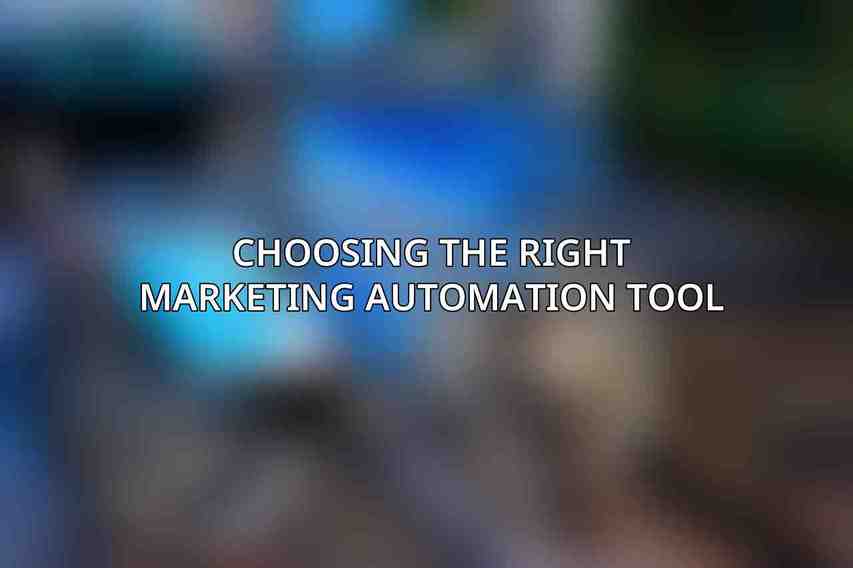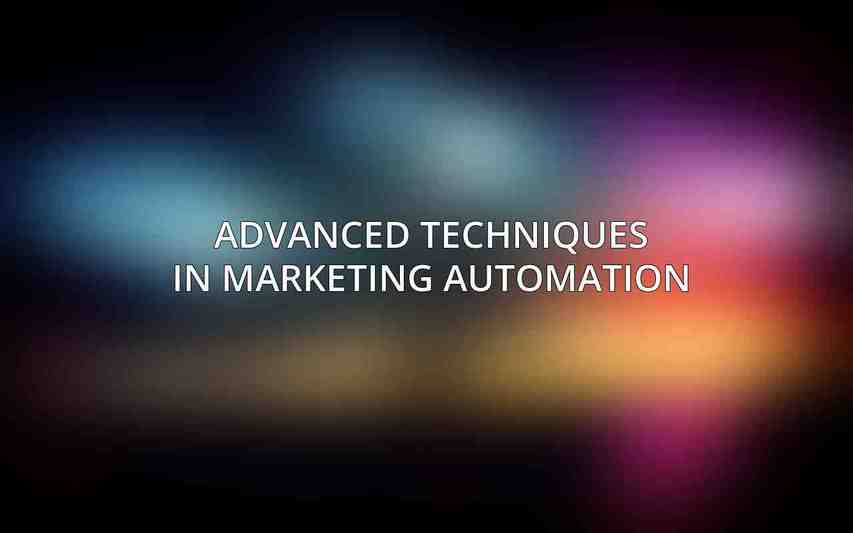marketing automation has become a vital tool for businesses looking to streamline their marketing efforts and engage with customers more effectively. marketing automation refers to the use of software and technology to automate marketing processes, making them more efficient and personalized.
Benefits of marketing automation include:1. Increased efficiency and productivity: By automating repetitive tasks, businesses can focus on more strategic activities.2. Improved customer engagement: Automation allows for personalized interactions with customers, leading to better engagement and loyalty.3. Personalized marketing messages: Tailoring messages to individual customers based on their behavior and preferences can lead to higher conversion rates.4. Data-driven insights: Automation platforms provide valuable data and analytics that help businesses make informed decisions.
Key features of marketing automation platforms typically include:
| Key Features | Description |
|---|---|
| Email marketing | Automating email campaigns |
| Social media marketing | Scheduling and managing social media posts |
| Lead generation and management | Capturing leads and nurturing them through the sales funnel |
| Analytics and reporting | Tracking and analyzing campaign performance |
Choosing the Right Marketing Automation Tool

When choosing a marketing automation tool, several factors should be considered:1. Business size and industry: The needs of a small business may differ from those of a larger enterprise.2. Marketing goals and objectives: The tool should align with the business’s marketing strategies.3. Budget and resources: Ensuring the tool is cost-effective and manageable.4. Integration with existing systems: Compatibility with current software and systems is crucial.
Popular marketing automation platforms include:1. HubSpot Marketing Hub2. Salesforce Marketing Cloud3. Marketo Engage4. Oracle Eloqua5. Adobe Campaign
Features and pricing vary from platform to platform, including capabilities like email marketing, social media tools, lead generation, analytics, reporting, integrations, and pricing plans.
Implementing Your Marketing Automation Platform
After selecting the right tool, the implementation process involves:A. Setting up your account and configuring settingsB. Importing contacts and dataC. Creating marketing campaignsD. Automating lead nurturing and email sequencesE. Integrating with your website and other systems Read more on Top 10 Marketing Automation Tools for 2024: Boost Your ROI
Best Practices for Marketing Automation
To make the most of your marketing automation efforts, consider these best practices:A. Creating effective email campaignsB. Optimizing landing pages for conversionsC. Segmenting your audience for targeted messagingD. Using data analytics to improve performanceE. Measuring ROI and making adjustments
Advanced Techniques in Marketing Automation

For those looking to take their marketing automation to the next level, consider:A. Using artificial intelligence (AI) for personalizationB. Integrating chatbots and live chat for customer supportC. Automating social media content creation and engagementD. Personalizing website content based on user behaviorE. Using marketing automation to drive sales and revenue
By following this step-by-step guide and implementing best practices, businesses can harness the power of marketing automation to enhance their marketing strategies and drive success in the digital world.
Frequently Asked Questions
What is marketing automation?
Marketing automation refers to the use of software and technology to streamline and automate marketing processes, such as email marketing, social media posting, and lead generation.
Why is marketing automation important?
Marketing automation is important because it allows businesses to save time and resources by automating repetitive tasks, target leads more effectively, and personalize customer interactions.
What are the key steps to set up marketing automation?
The key steps to set up marketing automation include identifying your goals, selecting the right software, setting up your automation workflows, integrating with other tools, and testing and optimizing your campaigns.
How can I choose the right marketing automation software?
To choose the right marketing automation software, consider factors like your budget, the features you need, ease of use, scalability, and customer support. It’s also helpful to read reviews and compare different options before making a decision.
What are some best practices for successful marketing automation?
Some best practices for successful marketing automation include segmenting your audience, personalizing your messages, testing different strategies, measuring your results, and constantly optimizing your campaigns based on data and insights.

